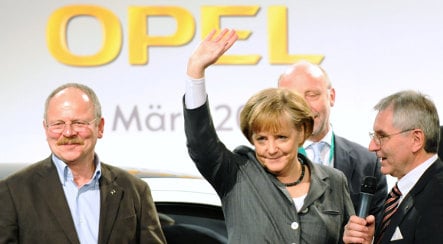Business weekly magazine Wirtschaftswoche reports this weekend that only the removal of Rick Wagoner, who was forced to resign on March 29 by US President Barack Obama, stopped the move to close the factory.
Eisenach factory manager Ralph Fürderer is said to have been told to call a meeting of the workforce to tell them of imminent closure.
The replacement of Wagoner by Fritz Henderson, who as former head of GM Europe is said to have more sympathy for Opel, halted that plan, and raised hopes somewhat that the brand might be rescued.
Fürderer told the magazine he was checking many decisions made at the company, and would be looking at a number of options, including the closure of Eisenach. He said there had been no direct order to announce the closure of the factory, but agreed that its future remains unknown.
Meanwhile a curious tussle is being reported between the coalition partners in the German government – for more rather than less responsibility regarding the desperate car firm.
News magazine Focus reports that Foreign Minister Frank-Walter Steinmeier has been pressing Chancellor Angela Merkel for more involvement in the Opel case.
He heads the campaign for the Social Democrats (SPD) against Merkel’s Christian Democrats (CDU) in the September general election, a situation which pitches the two top figures in the government against each other while still having to work together.
The magazine said the rivals have agreed that after Easter, Monday meetings in the Chancellery on the subject will include a junior minister from the Foreign Ministry.
Steinmeier has long demanded an Opel taskforce be established in the Chancellery, but until now, there has only been a negotiations team headed by a junior minister from the Economics Ministry, which is led by Karl-Theodor Freiherr zu Guttenberg, from the CDU’s Bavarian sister party the Christian Social Union (CSU).
The SPD says the new group is effectively the task force it had wanted – with the crucial Foreign Ministry involvement, but the Chancellery says it represents no more than an informative forum for those ministries interested in the subject.
When he went to the US last month, Steinmeier held talks on the future of Opel, putting his hat into the ring as potential hero should the company be saved.




 Please whitelist us to continue reading.
Please whitelist us to continue reading.